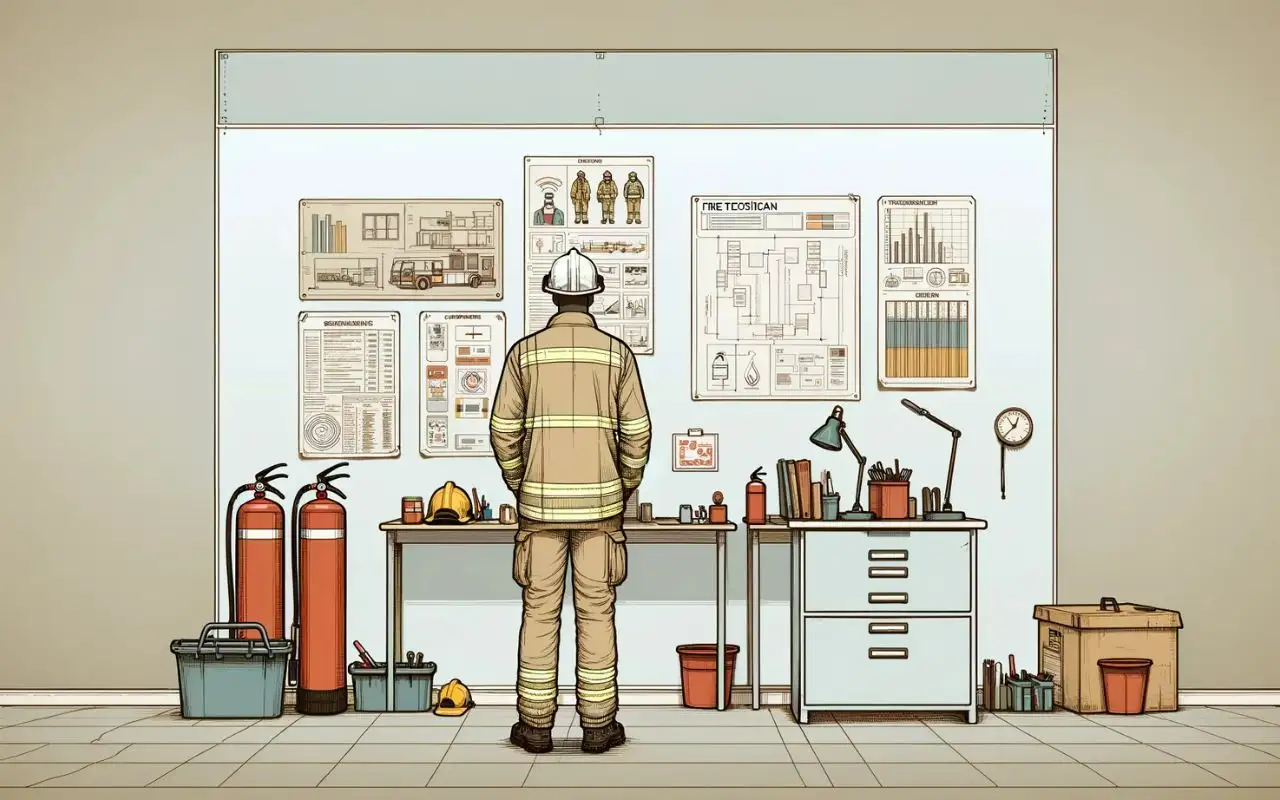A SAQCC FIRE Technician is a certified professional specializing in fire prevention and safety systems.
Trained and accredited by the South African Qualification and Certification Committee for the Fire Industry.
These technicians play a crucial role in ensuring the proper installation, maintenance, and inspection of fire protection equipment.
Their responsibilities encompass a range of fire safety devices, including fire extinguishers, sprinkler systems, and alarm systems.
SAQCC FIRE Technicians adhere to industry standards and regulations, conducting rigorous assessments to guarantee the effectiveness and reliability of fire safety measures.
How Much Does A SAQCC FIRE Technician Earn in South Africa
SAQCC FIRE technicians earn an average monthly salary of R16,600. Entry-level roles commence at R 144,000 annually, with seasoned professionals commanding salaries of up to R 330,000 per year.
Specifically, in Gauteng, technicians may earn between R300,000 and R400,000 annually, inclusive of overtime and performance bonuses.
Factors Affecting SAQCC FIRE Technician Salary in South Africa
1. Experience
Technicians with more experience typically command higher salaries. Years of service, specific project involvement, and relevant industry certifications all contribute to experience-based pay increases.
2. Location
Salaries can vary depending on the region or city where you work. Urban areas with higher living costs often offer higher wages, while rural areas may have lower pay scales.
3. Employer
Different companies have their own compensation structures and budgets, leading to variations in pay even within the same location. Public sector jobs may have different pay scales than private companies.
4. Qualifications
Possessing relevant qualifications and certifications like NQF Level 4 or higher, specific SAQCC certifications, and industry-specific training can enhance your earning potential.
5. Specialization
Technicians specializing in niche areas like high-rise buildings, hazardous materials, or specific fire suppression systems may earn more due to their expertise and limited availability.
6. Performance
Exceeding expectations, taking on additional responsibilities, and demonstrating initiative can lead to performance-based raises, bonuses, or promotions.
7. Negotiation
Negotiating your salary effectively during the hiring process or when seeking a raise can significantly impact your income. Researching market rates and presenting your value convincingly is crucial.
Education and Qualifications of A SAQCC FIRE Technician in South Africa
1. National Qualifications Framework (NQF) Level 4
This is the minimum qualification required for registration with the South African Qualifications Authority (SAQA) as a fire technician.
It can be achieved through various NQF Level 4 Firefighting qualifications offered by technical colleges, private institutions, and SETAs (Sector Education and Training Authorities).
2. SAQCC FIRE Fighting Competency Certificates
Holding the relevant SAQCC certificates demonstrates your competence in specific fire-related areas. These include:
- Fire Fighting Level 1: Basic firefighting principles and skills.
- Fire Fighting Level 2: Advanced firefighting techniques and leadership roles.
- Specialist Certificates: Additional certifications in areas like Breathing Apparatus, Incident Command, and Fire Investigation can enhance your expertise and career prospects.
3. Industry-Specific Training
Depending on your specialization, additional training courses approved by the fire industry or relevant associations can be valuable. These may cover high-rise firefighting, hazardous materials handling, or specific fire suppression systems.
4. First Aid and CPR Certification
Possessing a valid first aid and CPR certificate is essential for immediate medical response in emergency situations.
5. Physical Fitness and Endurance
Firefighting demands a high level of physical fitness and endurance. Regular exercise and maintaining physical fitness standards set by the SAQCC are crucial.
6. Clear Criminal Record
A clear criminal record is mandatory for obtaining an SAQCC registration and employment in most fire service organizations.
7. Communication and Interpersonal Skills
Effective communication and collaboration are essential for teamwork and leadership in firefighting operations.
8. Problem-Solving and Decision-Making Skills
Firefighters need to make quick and sound decisions in dynamic and often hazardous situations.
9. Ability to Work Independently and as Part of a Team
You must be comfortable working independently while also functioning effectively as part of a team in high-pressure environments.
10. Commitment to Continuous Learning
The fire industry constantly evolves, requiring ongoing professional development and staying updated with the latest regulations and techniques.

